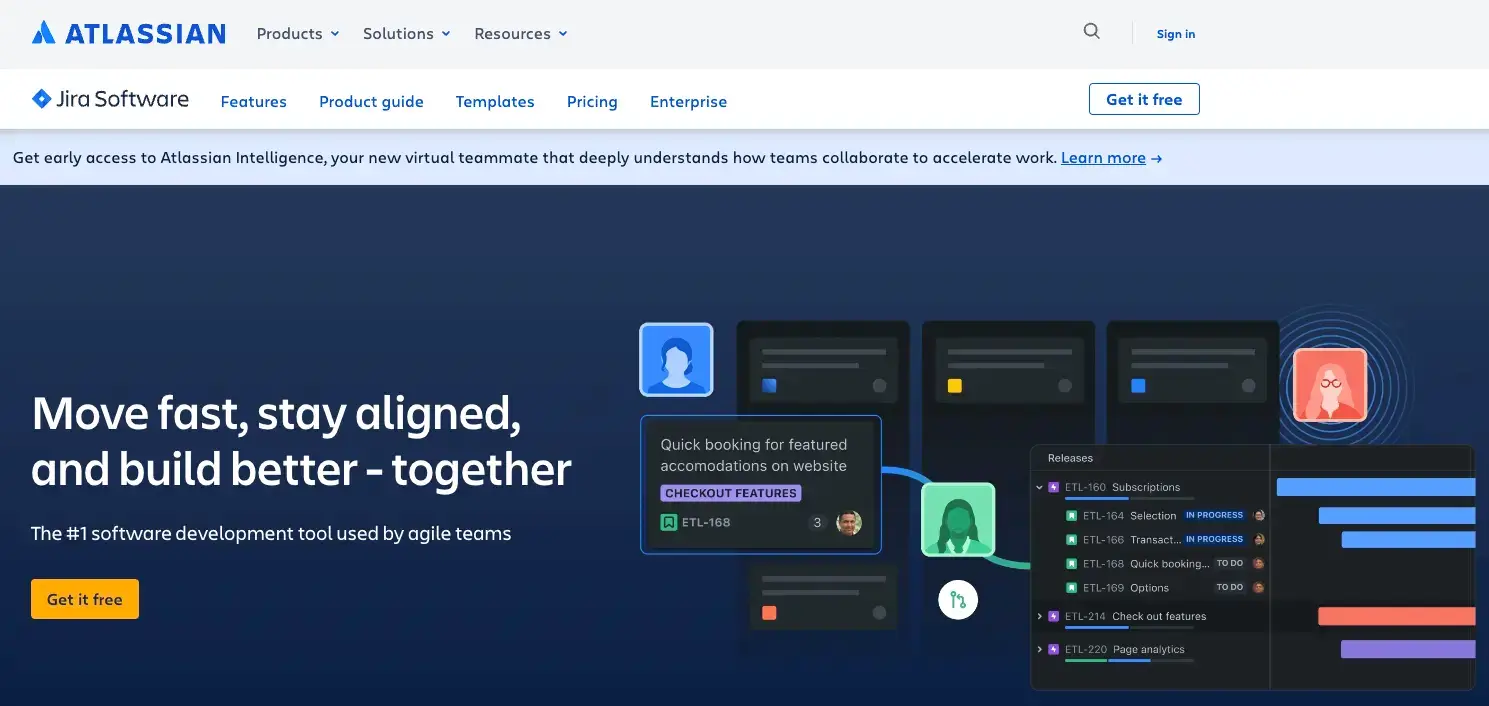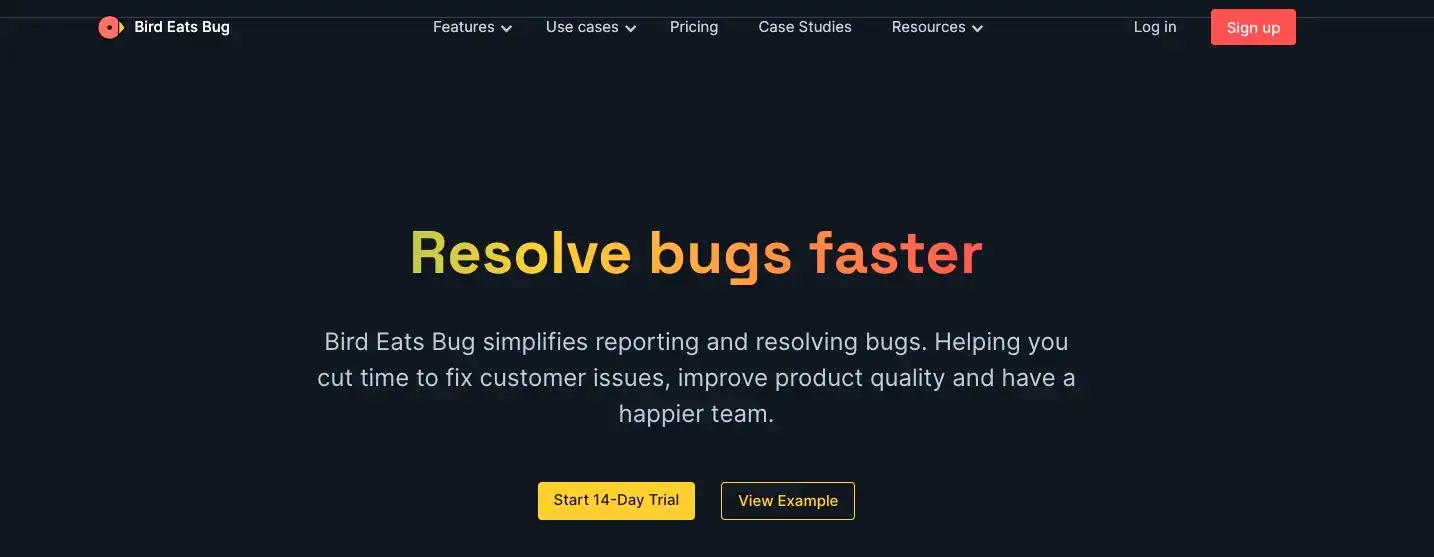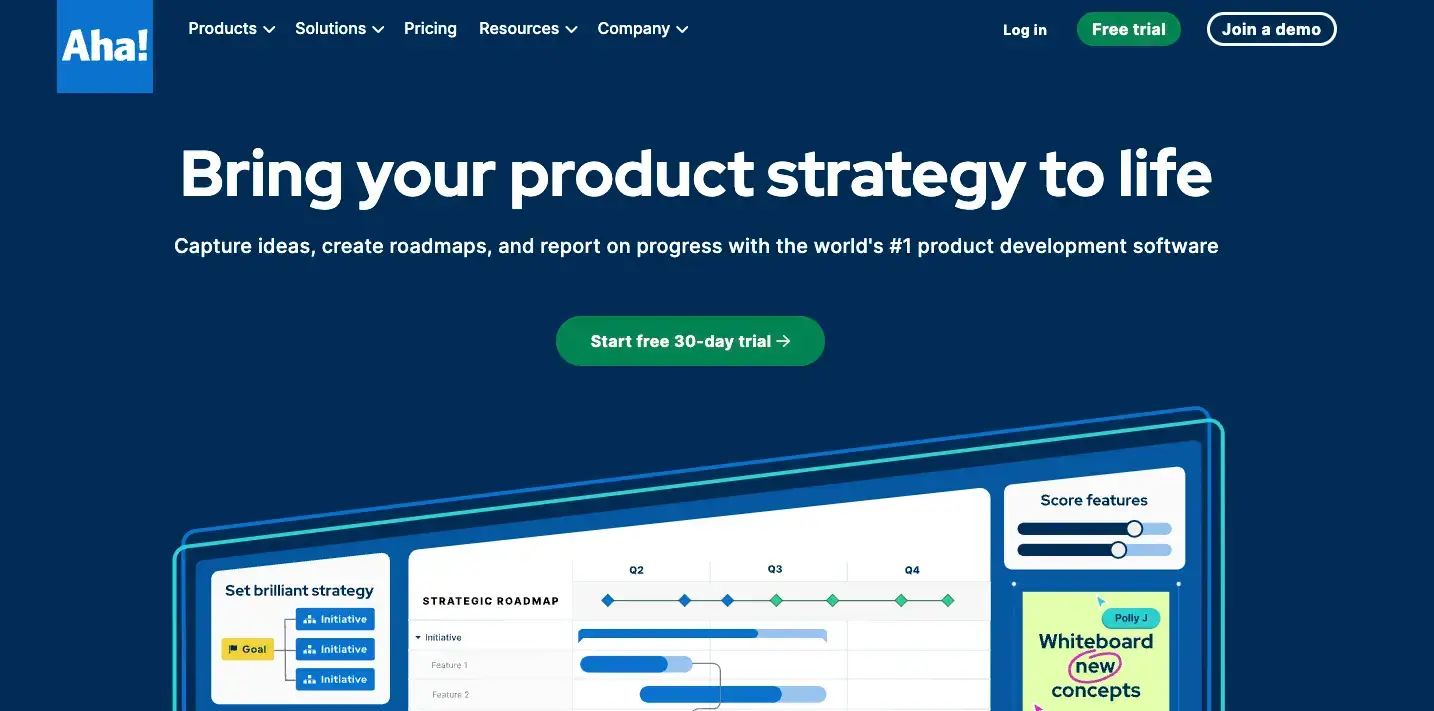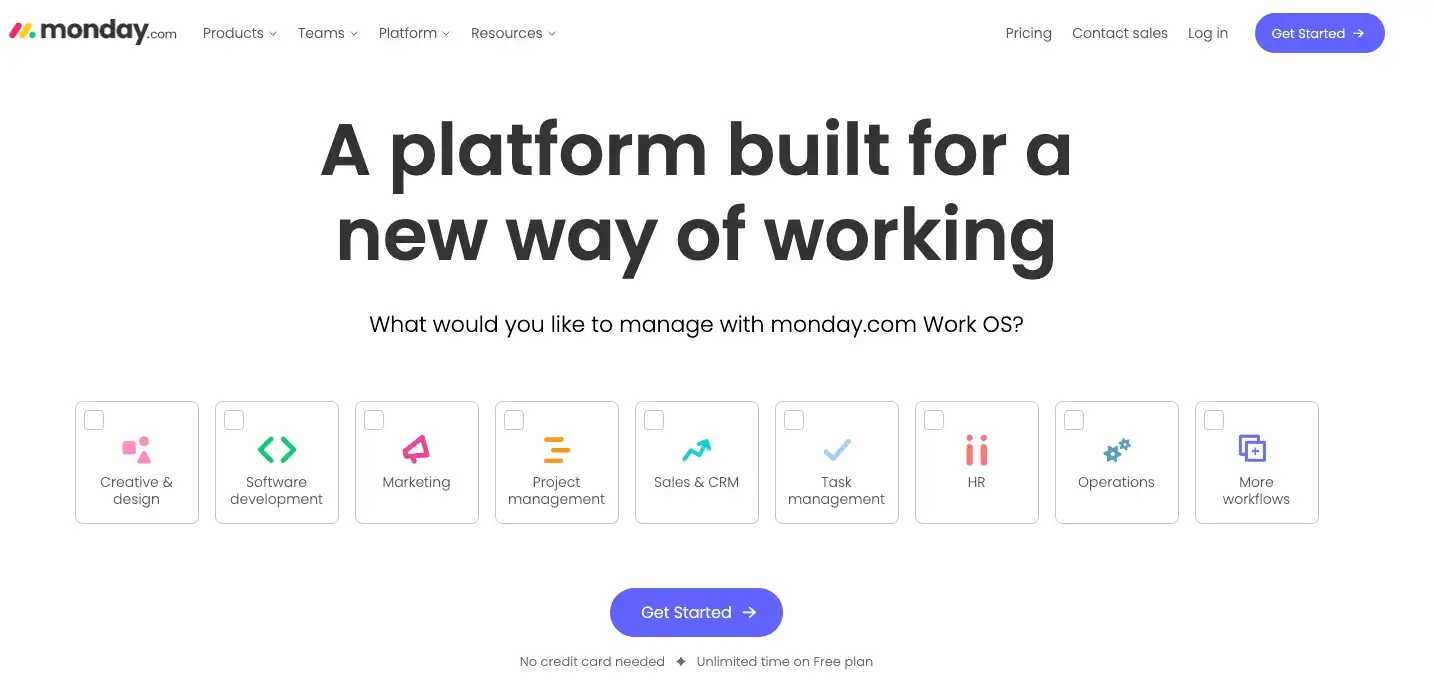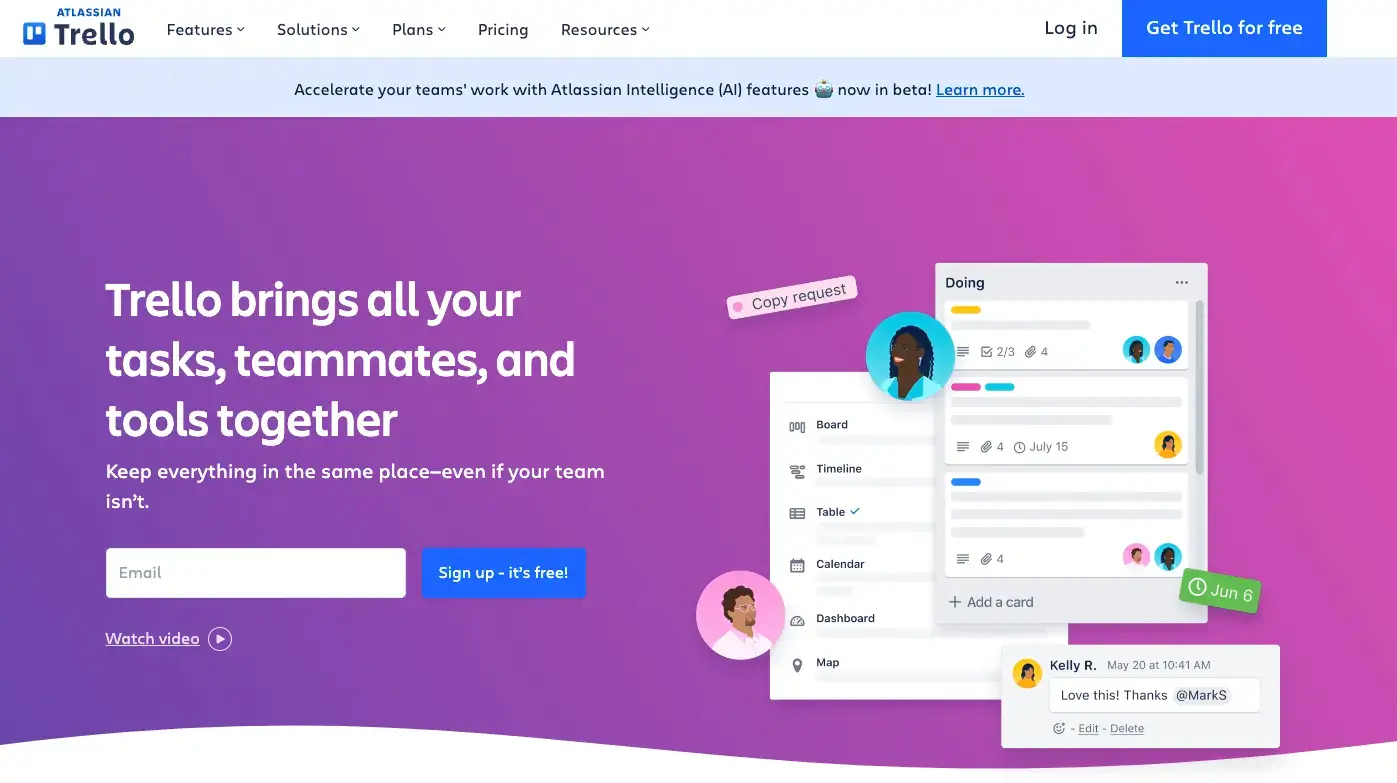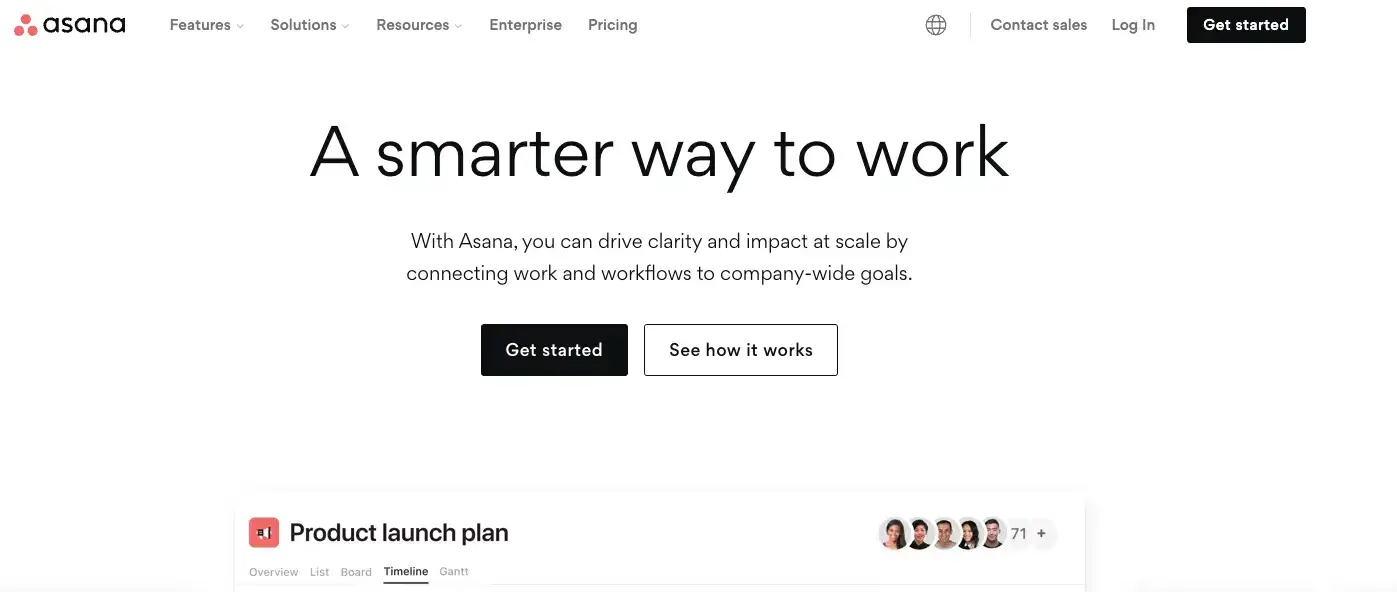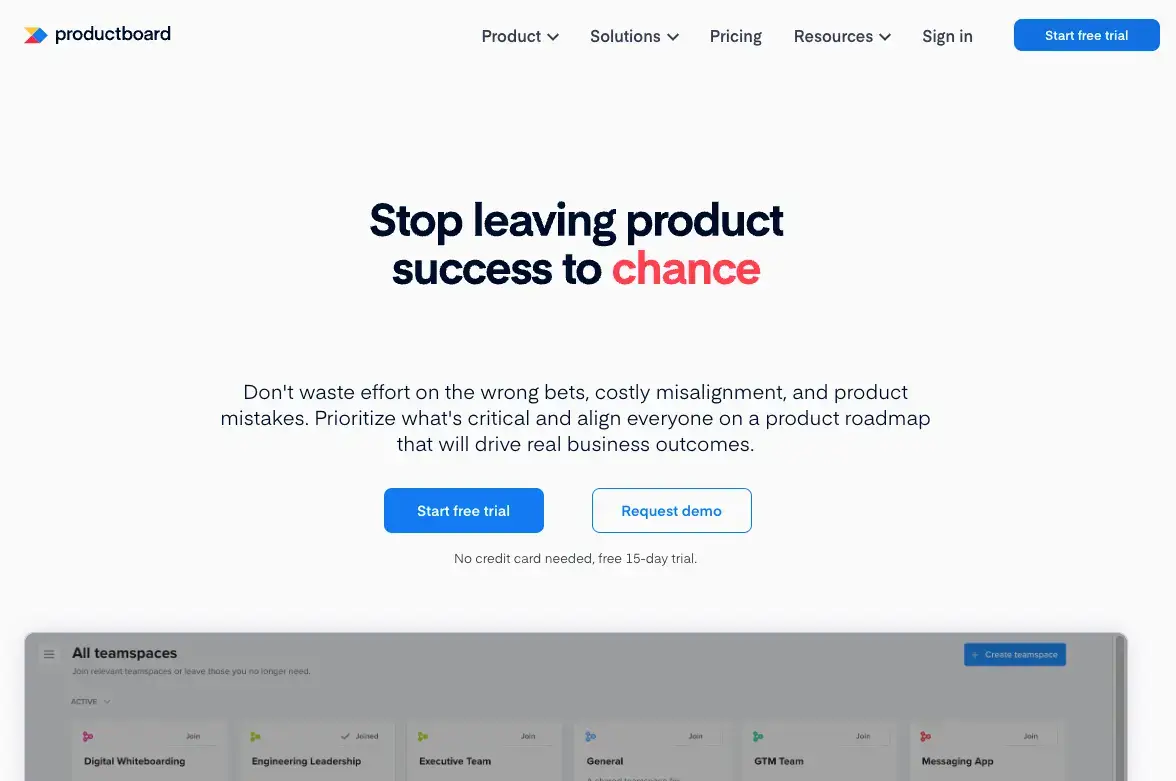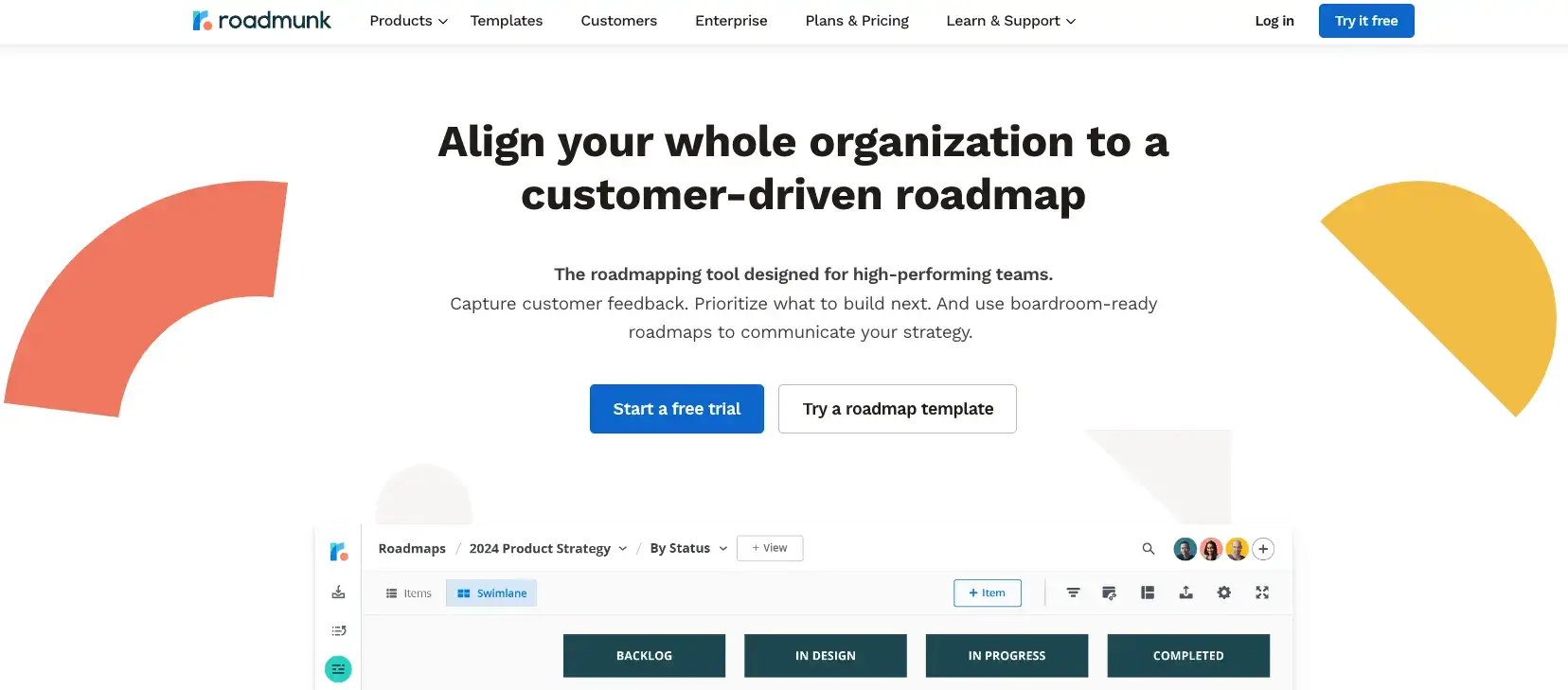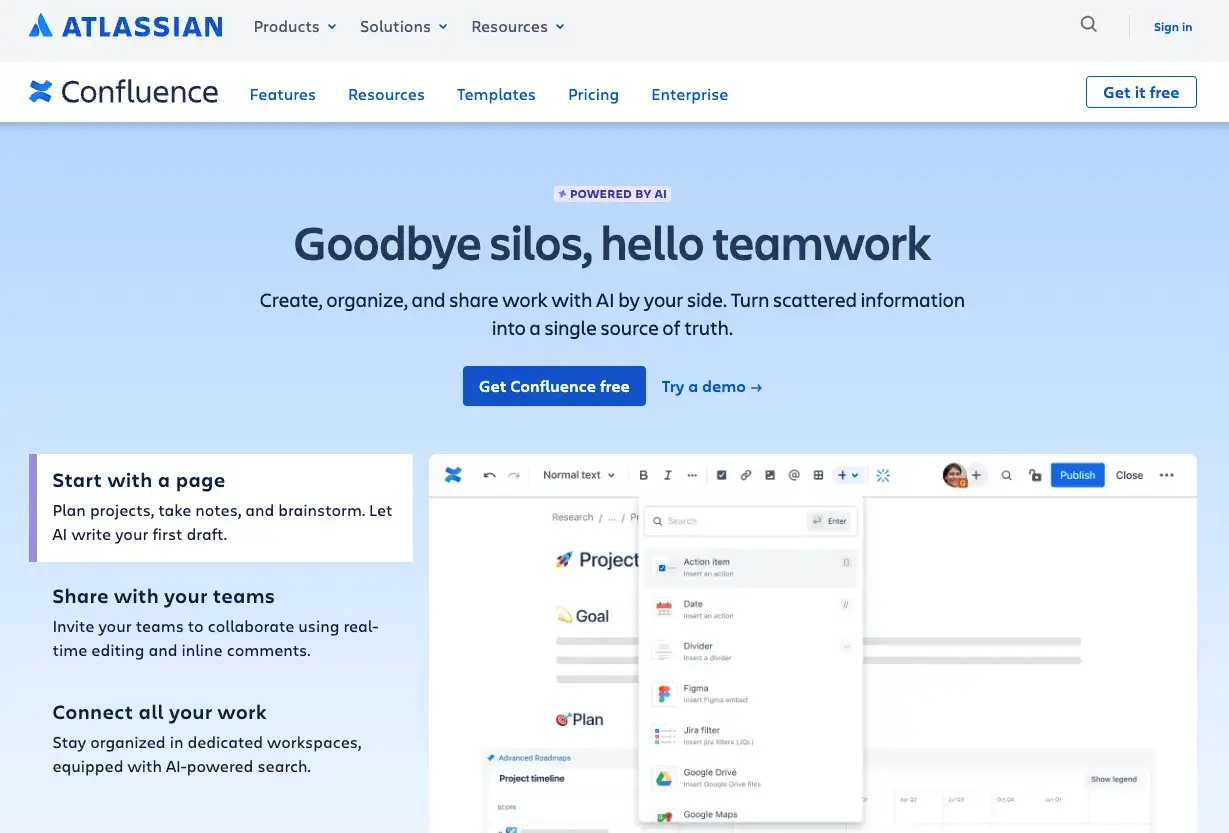Product management can feel like a juggling act. Are you keeping track of everything from market research to task completion to team collaboration? That's quite the stretch.
Fortunately, tech has caught up with our needs, offering robust product management tools that enable small businesses to:
- map out product strategies,
- outline roadmaps,
- manage daily tasks,
- facilitate collaboration.
Let’s round up the ten best product management tools that'll give you a grip on your processes.
Skip to: 10 Best Product Management Tools

Benefits of Using Product Management Tools
But why are these tools so critical?
- Task management: These tools step in to manage the mayhem. They can juggle multiple tasks, track progress, and break down complex processes into manageable steps.
- Time-saving: They take the load off you, freeing time for important work like conceptualizing and refining the product. These tools save significant time and effort through task automation and effective tracking.
- Collaboration: They aid in streamlining workflows, fostering communication among team members, and centralizing information in one place.
- Data analysis: These tools assist in gathering and analyzing key market insights, setting realistic goals, and bridging gaps between various product aspects.
The ability to generate visual aids and manage workflows gives these tools a distinct advantage for product management teams.
Now, let’s explore the best product management tools for 2024!!
10 Best Product Management Tools
Any of these tools will provide the structure, clarity, and efficiency that make the product management process manageable and enjoyable.
1. Jira
As a cornerstone in product management, Jira by Atlassian is hard to overlook. It's a tool known for its robustness and versatility in project management and tracking.
Jira stands out for its highly customizable features relevant to product management.
It allows you to create, track, and manage tasks with granular detail, offering complete visibility into a project’s progression.
Its advanced reporting and dashboard capabilities will undoubtedly satiate those who love digging deep into data.
But where Jira truly shines is its appropriateness for Agile teams.
Jira might be your go-to if 'Scrum' or 'Kanban' are regular words in your team chatter. It provides you with custom agile workflows that enable continuous delivery.
You can utilize its highly customizable roadmap to plan your sprints, share your strategic vision, or give updates on project or product shifts.
Another cherry on top is Jira's swift integration with other Atlassian products, such as Confluence and Bitbucket, amplifying collaboration and streamlining your work across multiple platforms.
So, if you're gearing up to manage Agile product development and need a tool that's as flexible as it's powerful, give Jira a whirl.
Don't worry, it won't cost you a mint. Different pricing plans include a free option for small teams of up to ten members.
2. Bird Eats Bug
Stepping onto the product management tools stage with a unique proposition is Bird Eats Bug, a platform that marries bug reporting and screen recording features.
At first glance, your eyebrows may furrow at this combination. But the value of such a pair-up becomes apparent upon a closer look.
Bug reporting, after all, is an essential part of product management. It's how we uncover friction points, fix ongoing issues, and improve our product.
Bird Eats Bug's streamlined bug reporting makes this process simple and efficient.
Then, we have the screen recording feature. Picture it as your lens to observe user interactions and experience, giving you firsthand information on how your product is being used and where potential hurdles lie.
It’s a vantage point you didn’t know you needed in your arsenal.
Bird Eats Bug soars because it is ideal for product development and tech teams. There's no guesswork about who did what and when - it's all laid out clearly and organized.
The tool helps teams to pinpoint issues, take swift action, and track resolution progress. It's a game-changer for teams looking to save time, improve accuracy, and, ultimately, deliver a better product.
Bird Eats Bug might not be your standard product management tool, but sometimes, a different perch gives you a unique perspective - precisely what this platform delivers.
3. Aha!
Taking the stage next is Aha!, a heavy lifter in the world of product management tools. It's like the Swiss Army knife of PM tools–practically filled to the brim with features that will help you ace your product management game.
Primarily, Aha! showcases its skills in strategy and road mapping. Its ability to sketch detailed visual roadmaps and present a bird's eye view of the project lifecycle is second to none.
You'll find that laying out your product strategy is a breeze on this platform.
Another strength that sets Aha! apart is its superb integration capabilities.
Whether your team's setting up camp on Jira, Trello, Github, or Microsoft Teams, you won’t feel left out - Aha! speaks all these languages and then some.
This tool is a social butterfly in the tech sphere, and its ability to form deep connections with other platforms makes it a genuinely adaptive tool, ready for any environment.
If you need a tool that can help you make sense of your strategy, blast through roadmaps like a bullet train, and play nice with your other tools, Aha! might just be your ticket.
4. Monday.com
From its visually appealing interface to its customizable workflows, Monday.com shines a new light on project and product management.
It's revered for its flexible project tracking feature, which utilizes customizable boards, similar to a Kanban setup. These boards allow you to view your project’s progress, from ideation to execution, in real-time.
But it's not just about project tracking. Monday.com goes far beyond that. Its intuitive automation capabilities and over 40 integrations streamline your processes without compromising your team’s workflow.
You can also build report dashboards for a more holistic view of your projects, perfect for team meetings or updating stakeholders.
In terms of design, Monday.com truly embraces simplicity and intuitiveness.
It's one of those tools that, once you start using it, you instantly know how it'll benefit your team and projects.
This welcoming feature makes Monday.com an excellent choice for teams looking for a tool that’s both powerful and easy to understand from the get-go.
What sets Monday.com apart is its ability to cater to teams of all sizes and across varied industries.
Whether you're a growing startup managing product development or a large company orchestrating complex projects, Monday.com has the flexibility and features to stay in sync.
Meet your targets, and make Mondays something to look forward to.
5. Trello
Trello is an old standby when it comes to product management tools. It's reminiscent of a digital corkboard, where you stick post-it notes, but it's so much more than that.
At its core, it's an incredibly easy-to-use tool that doesn't skimp on functionality.
With Trello, everything is oriented toward visual-friendly, straightforward pipeline management. The tool encourages organization through its card-based system, where each card represents a task or project element.
You can sort these cards - or tasks - into separate columns representing different stages of your product development process. It visualizes what team members need to do, what's in progress, and what has been completed.
But don't let Trello's simplicity fool you. It's highly effective for task assignments and goal tracking. You can customize each card with due dates, checklists, attachments, and color-coded labels.
Trello Pricing accommodates a diverse range of users, offering a tiered structure that includes a free basic plan and premium options with enhanced features and collaboration tools.
Different team members can be assigned to specific cards, removing ambiguity about who is responsible for what.
Trello also allows integration with other productivity tools like Google Drive, Slack, and Evernote. It makes it easy to combine all your communication and resources in one place.
Moreover, activity logs and notifications ensure that every team member stays updated with project developments.
6. Asana
Regarding task management and project tracking, Asana steps up to the plate and hits a home run every time.
The beauty of Asana is not only in its wide-functioning capabilities but also in its user-friendly interface. It's sleek yet simple, intuitive, and doesn't require hours of YouTube tutorials.
You'll be up and running in no time, even if you're not tech-savvy.
Asana also offers a robust reporting system that makes getting a high-level view of your project’s progress easy.
Whether you want a project status update or a detailed drill-down into individual task performance, Asana has you covered.
Its dynamic dashboards provide a visual strategy for tracking your team's work in real-time and deliver insights that will drive you to make data-driven decisions.
Altogether, Asana's charm lies in its ability to streamline tasks, maximize productivity, and foster seamless team collaboration, all while providing a smooth riding experience for users.
A surefire winner for any product management line-up.
7. Productboard
Productboard is a product management tool with product managers as its central focus. This focus extends to feature road mapping and thorough user insights.
In an environment where staying attuned to the pulse of the consumer is crucial, Productboard allows product managers to keep their fingers firmly on this pulse.
Known for its robust canvas for product roadmapping, it gives you an excellent bird's eye view of your product strategy, ensuring that teams playing a part in developing the product are on the same page.
The tool provides native support for agile methodologies - which is beneficial for teams practicing Scrum or Kanban.
Productboard excels with its user insights capability.
This attribute provides a system for recording and retaining valuable user feedback, which can be linked directly to features to create a strong context for product discussions.
Productboard serves to align the product vision, strategy, and execution. The tool ensures that everyone knows what you are building, why you are building it, and what value it will bring to your customers.
With its dedicated function set targeting the minutiae of a product manager's workflow, Productboard helps make your product strategy concrete and accessible.
It's about giving everyone - from developers to stakeholders - a clear, holistic vision of the product map, keeping the user experience at the heart of all considerations.
8. Roadmunk
Next up, we have Roadmunk. This tool is worth your attention if you seek help with product roadmaps.
Roadmunk is all about enabling teams to put their product strategy down on paper or digital paper, that is.
Its easy-to-use interface allows you to create stunning visual roadmaps to keep your whole team, stakeholders, and anyone else.
Roadmunk is all about the big picture. It's not just about managing daily tasks or tracking progress, although it can do those, too.
It’s about providing a platform to sketch out your product’s journey from conception to delivery.
Roadmunk is like a GPS for your product's journey.
It helps you plot the route, point out significant milestones, and ensure you're all headed in the same direction.
And hey, a change of plans isn't a biggie with Roadmunk.
Its drag-and-drop functionality allows you to easily adjust timelines, accommodating those inevitable shifts that come with any product development keeping your roadmap fluid and adaptable.
In essence, Roadmunk prides itself in being more than just a project management tool. It’s a tool for long-term strategic planning.
It's about seeing the forest, not just the trees on the path to product realization. If strategic, visual, and flexible planning is what you are after, then it's worth giving Roadmunk a spin.
9. Confluence
We churn forward to Confluence, an essential tool popular for its emphasis on documentation and a shared workspace.
Developed by Atlassian, this gem is a catchy hit with teams who value thorough record-keeping, structured content organization, and detailed documentation.
Casual yet robust, Confluence is a platform that allows teams to create, collaborate, and store all their work in one place.
It brings a collective element into product management, encouraging teams to work together on creating and updating documentation.
Design specs, product requirements, meeting notes- you name it, Confluence has space for it. But what sets Confluence apart is its harmonious integration with other Atlassian products.
Jira and Confluence are like chips and dip - they work just fine alone, but together, they practically sing. Plan in Jira, document in Confluence, and seamlessly flow between the two.
Plus, you can dip into the treasuries of knowledge stored in your Confluence pages directly from Jira issues, making information sharing as smooth as that double-dip your chip just made.
That’s why developers, web designers, and product managers love this tool.
Moreover, Confluence quickly extends its friendly handshake toward other non-Atlassian products.
It integrates well with many different tools, robustly expanding its utility across several areas of product management.
In summary, Confluence doesn't simply sit on the functionality stool of product management tools. It gallantly spins it, showing off its documentation prowess, collaboration vibe, and all-star integration skills.
If you've got a team that thrives on documentation and loves a good team play, Confluence may become your new favorite team member.
10. Airtable
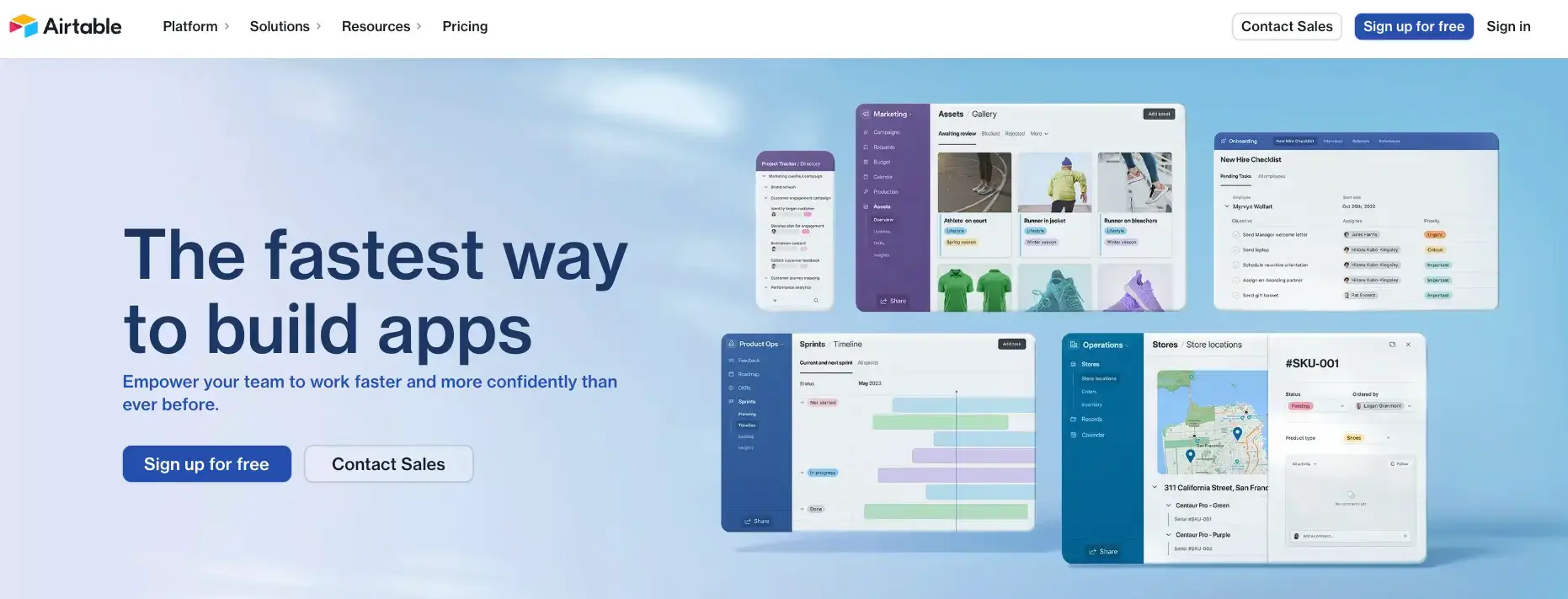
Next on the roster is Airtable, a platform combining the best of a traditional spreadsheet and a fully functional database.
With this exciting combination, the tool offers unique advantages in product management, allowing you to merge the familiar aesthetic of spreadsheets with the power-packed functionality of a database.
Airtable shines in the way it elegantly organizes content across diverse work areas, so you can always have a clear snapshot of where any product aspect stands at any given moment.
It helps create comprehensive product catalogs and execute ongoing projects and strategic plans.
Need to track tasks with clever color-coded tags or manage intricate timelines using Kanban, grid, list, or even a calendar view?
Airtable does all that while keeping things intuitively easy.
Due to its flexible design, it works like a charm for teams of any size and can tackle projects of both small and grand scales.
In a nutshell, Airtable is a master of organization, perfect for aligning every cog and wheel in your product management machinery.
Its hybrid structure translates into an interface that's easy to navigate and enjoy. Like your favorite woolen sweater on a brisk winter morning, it's comfortable, dependable, and improves your life.
As with other tools, the key is to truly explore the platform to discover how well it can cater to your specific product management needs.
So take it out for a spin, and you might find the 'aha' solution your product team has been looking for.
Read more on: 7 Expert Task Management Productivity Tips
Conclusion
Only you know which product management tool is best for your business. Just because it's popular, or expensive, doesn't mean it's the right fit for you.
I hope this tool roundup can help you and your team identify the one that best aligns with your unique workflow, project requirements, and methods.
A product management tool's true value lies in its ability to pack in features and enhance productivity, streamline your processes, and ultimately make your life easier.
So whether your team thrives on the simplicity and visual appeal of a tool like Trello or needs the expansive integration capabilities of an Aha!, the key is compatibility with your team's style and needs.


